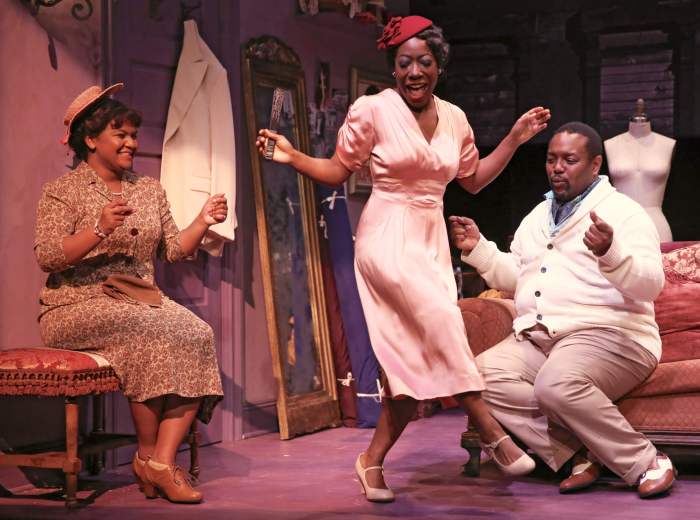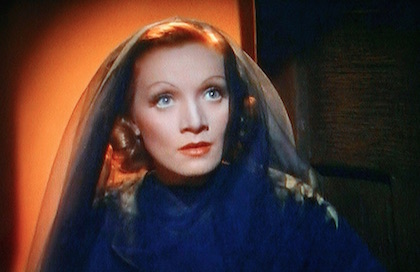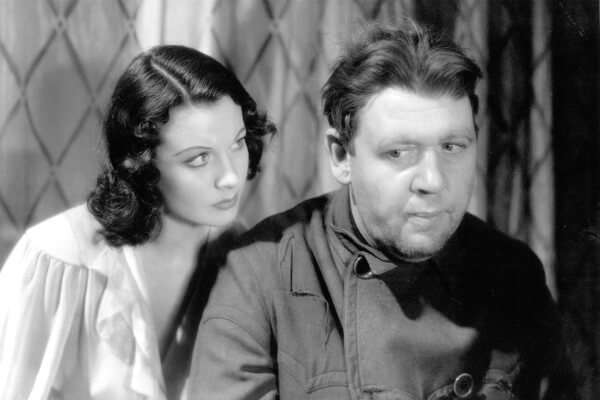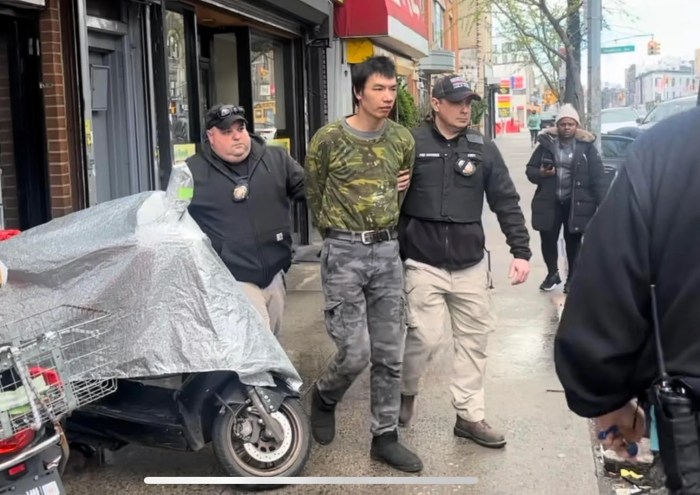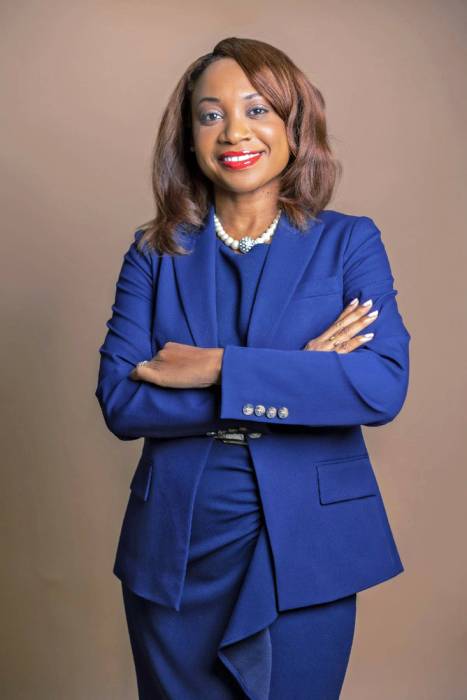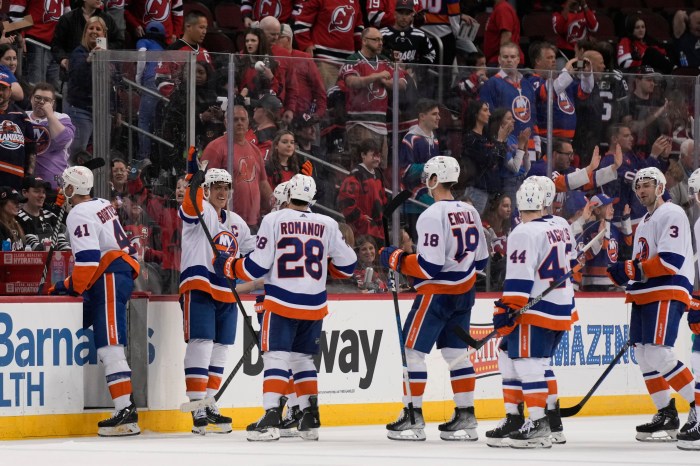BY DAVID NOH | I’m more man than you’ll ever be and more woman than you’ll ever get!” This ultimate putdown was ferociously spat out in 1976’s “Carwash” by Antonio Fargas as take-no-prisoners drag queen Lindy. The line not only became a gay cult favorite, but has forever enshrined Fargas in moviegoers’ hearts for this portrayal, as well as his other gender-bending roles in “Next Stop Greenwich Village,” “Ambush Murders,” and Millie Jackson’s play “Young Man, Older Woman,” in which he offered something of a model for Tyler Perry’s Madea.
The fabulously loquacious Fargas deliciously took control of the interview before I even had a chance to ask a question and his eloquence gave him every right to, as far as I was concerned: “You know, I was just talking to an old friend about my film work and my life’s work and how they collided. So much of my history has come full circle. Did you see that unsung “Car Wash?” They talked about the problems of getting the movie done on both the racial and social levels. But somehow it came together and the symbolism of some of the characters in there, like our director Michael Schultz’s wife playing a prostitute and people thinking she was the real deal. Or Bill Duke playing the revolutionary, Abdullah, or my character, Lindy. We were out there, and what that meant to people who were watching, seeing themselves portrayed with sensitivity –– and sensitivity to their pain.
“I was always attracted to characters taking chances, revolutionaries, daring to cross color lines and all those things that were going on in the 1970s, on whose shoulders today’s artists stand. It’s an amazing day today, and I’m proud to represent my people as an African American and also the other people who struggled around the world. Although it’s still horrifying that gays and lesbians could be attacked at an Israel Gay Pride parade, people are reacting to it like we are all coming from the back of the bus or sitting at the lunch counter and having people spit at us.
A character actor who pioneered gay roles in film, and also happened to be black
“This is completely synonymous with the African-American struggle. And for gays and lesbians, because of what’s going on the Internet and YouTube, the movement has moved to another level, which will further bridge the gap. In the military, it’s now beyond Don’t Ask, Don’t Tell with two ladies becoming US Rangers in the Army. When we go to war now, it’s like when I was opposed to our Vietnam involvement, people from the Bronx and Detroit were fighting alongside those from the South because none of them had college deferments, they didn’t have the money. And now, gay and straight people have to depend on each other. War brings people together; the hating better stop because my life can depend on you.”
Not everyone in the African-American community makes the connection between LGBT rights and the Civil Rights Movement that Fargas, who is not gay, makes: “I remember my brother having to take the lash and being kicked by my dad because he was so frustrated because he chose a gay lifestyle. So Puerto Rican macho, my father probably didn’t even realize how much this may have contributed to that decision. It’s very interesting to watch people who are different and how they are treated. I was always attracted to the guy nodding out and playing the piano, or the transvestites on the West Side on the docks and their tricks. As an artist, my eyes were always wide open and aware of survivors like Jack Johnson. He was the champion boxer of the world, yet how could he marry a white woman in the early 1900s and survive? It’s a very spiritual thing.
“The life that I led made me sensitive to the pain of others, but also to my own pain to survive being an artist and an actor. I met people who were different, which included gay, and we had a bond, a respect for each other. In acting, I found a place where I could be comfortable because I felt different. I wasn’t a normal kind of guy from a normal kind of situation. Sometimes I think I was born president and CEO of Antonio Fargas, Inc., and I had no idea how to run a company [laughs].
“From the beginning of my life, I found salvation in the arts, in medicine, in alcohol, and all those things that made me able to deal with this hostile world. Most of all, I found it with the gift of interpreting and creating characters.”
In the 1970s, there was a dearth of gay characters in films, let alone gay black characters, but along came Fargas, to single-handedly fill the bill, playing queer in two movies in ’76 –– “Car Wash” and Paul Mazursky’s masterpiece, “Next Stop, Greenwich Village.” Fargas said, “I just know that I love. Sexually, that is not me, but at the same time, I feel close. I don’t have the prejudices and I can say I love men, although I don’t have sex with them. But at the same time, in order to play something, you really have to identify with and let somebody live. I think it’s a shame when actors make fun of these characters they’re trying to play, like, ‘It’s not really me, but I’m just doing it.’ There’s that distance and that fear when actors aren’t able to go there.”
Fargas’ Bernstein in “Next Stop, Greenwich Village” is searingly well-played, especially when his mask of bravado comes down and he tearfully describes his “trade” as being the only reason he lives: “What a cast we had on that film, beautiful Ellen Greene, Christopher Walken, Lenny Baker, Jeff Goldblum, Shelley Winters, and our director just passed! I was channeling the Shirley Clarke film ‘Portrait of Jason’ character [a gay hustler] for Bernstein. The first film I ever did was ‘The Cool World,’ which [Clarke and Carl Lee] directed. They brought me up as my mentor, in life as well as the business. That scene about taking off the mask was very Jason.”
Did Fargas improvise any of Bernstein’s lines?
“Not really. I really have such a respect for writers, without the page there’s nothing. And, to tell you the truth, Paul Mazursky knew I was doing drugs, even at that time, and we talked about that when we spoke for the last time at the Directors Guild showing of ‘Next Stop’ in his honor. He was very touching, a man of compassion and wonderful.
“When I did ‘Putney Swope’ with Robert Downey Sr., he really let you improvise and got the kinds of actors who could. The reason I played so many gay roles was because I had the ability to go there and that sort of gave me a reputation. Like the group in ‘Next Stop,’ I came from hanging out in the Village and we felt empowered because of the Civil Rights Movement coming to a creative head, along with Off Broadway revolutionary plays, James Baldwin’s works, crossing color lines. We were trying to find each other and love all these characters who were coming together in this space and time, which was special.
“We were groundbreakers in a lot of ways. To be a part of that is be chosen, like God chose this date to be written before we were born, for me to talk to you at this time. That’s how a life and career is: we’re having this conversation in our own personal journeys. I don’t know when my show is going to be cancelled and you don’t know about yours, either. I only have a few more years on this planet left, and it’s a feeling about what you’ve done when you’re finished. I feel like I’ve finally found my place of freedom and could never have had this conversation 30 years ago. It wasn’t time yet, but now I have left the fear –– what can anybody do to me? I earned this.”
I told Fargas that when I heard he was available for this interview, I was almost surprised to discover that he was indeed still alive. Chuckling, he said, “I have been under the radar all my life and I like it that way. I did ‘Everybody Hates Chris’ for four years and have been showing up in different places.”
Fargas went through a difficult drug and alcohol period, and admitted, “I’m a survivor –– been there, done that. I was chosen to be on the phone today, nothing I could have done could have avoided this day. No matter how many drugs I took or how much alcohol I drank, this was the plan for me. Oh yeah, oh yeah, before Betty Ford was popular, the only thing was the self help that’s been around for 80 years –– Alcoholics Anonymous –– and then came Sex Anonymous and Cocaine Anonymous. All these things were built on those 12 steps. I have a great deal of respect for the survivors and I hang out in that area all the time.”
I had to ask Fargas about Huggy Bear, his cult character on the ‘70s TV hit “Starsky & Hutch”: I think sometimes I should change my birth certificate because those four years I did that made me a worldwide known actor. The power of television and symbolism. Huggy Bear was another survivor in a hostile world, like I was in Hollywood and the social/ racial climate in this country at that time. But I was an artist so I had a dispensation and because I wasn’t just any black guy, they respected me when I moved into this white neighborhood in Newport, Rhode Island. They respected me, because I was Huggy Bear, whereas another African American might have a hard time.”
Fargas, whose most recent film work is the sci-fi adventure “Beyond Skyline,” due out next year, said, “I never stopped embracing my legacy, like some actors who feel handicapped by it and try to get away from it. I never tried to be a star and took on all kinds of roles. I was never limited, except for being the voice for characters who didn’t have a voice.”




























